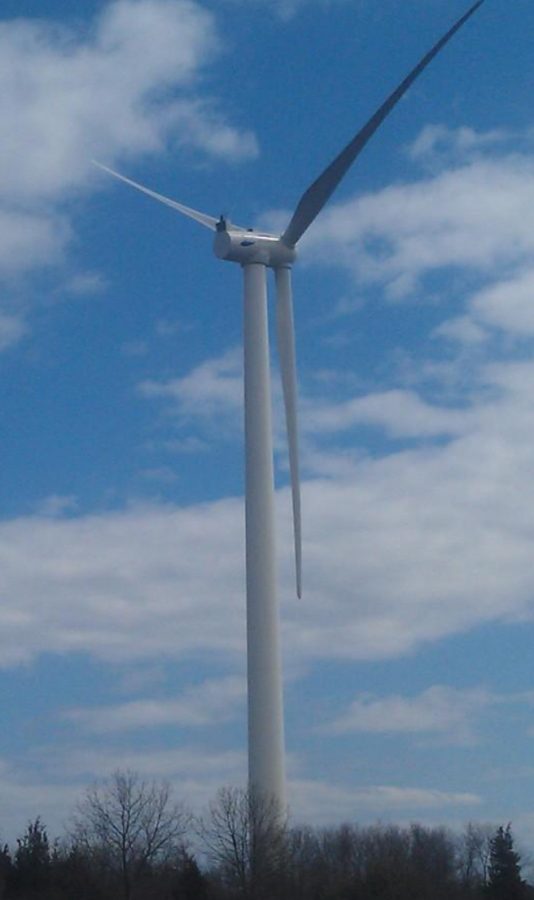New Scituate Town Manager Weighs in on Windmill
Jim Boudreau gives his take on controversial wind turbine
February 14, 2018
Scituate’s wind turbine on Driftway is a divisive landmark for the residents living in its shadow. Many residents seem content with the eco-benefits and financial savings of the turbine, while others see the distraction of the turbine as too much to bear.
The project was set in motion in 2005 when the Scituate Board of Selectmen created a Renewable Energy Committee to explore new innovations for wind power to be implemented in the future.
Seven years later, the turbine began “producing clean energy for the town,” according to the Scituate Wind’s website. It conserves about 6.5 million pounds of harmful CO2 a year and can provide electricity for over 400 houses a year.
Scituate makes money on the turbine by selling the energy to National Grid, who have awarded Scituate over $2.3 million in energy credit. But the windmill’s not all income. It has to pay Solaya Energy LLC, the company that operates the wind turbine. By changing the operating hours to appease residents, the town could risk losing money on the turbine.
New Scituate Town Manager Jim Boudreau described how the turbine’s cash and electricity benefits are very positive for the town. The turbine, in conjunction with Scituate’s solar panels, generates all of the town’s electricity, in addition to providing 65% of South Shore Vocational Technical School’s power, according to Boudreau.
Despite these positive aspects of the windmill, the town still has a number of vocal critics. David Dardi, a resident who lives near the turbine, said in an interview with Boston.com that he is frustrated by its sheer size and the fact that he had no knowledge of its construction in advance.
Scituate High School student Josh McKeever has some concerns as well. Living 640 feet away from the windmill, he said the windmill creates a “swishing sound” in addition to a vibration. McKeever also said the windmill “keeps us up at night” in addition to giving his family headaches and “ringing in the ears.” McKeever isn’t against renewable energy; he’s just against it being so close to residents and their houses.
In response to residents’ concerns, the town has made efforts to make the turbine less invasive. “We actually shut it down,” said Boudreau, as he explained the specific wind conditions, which cause disruptive sounds around Third Cliff, prompting the turbine to shut down. However, some residents are pushing for even more restrictions. Claiming to be losing sleep because of the sounds, a group of Third Cliff residents want it to be shut down during all night hours. Town Health Director Jennifer Keefe did a cost analysis study that had the town losing just shy of $163,000 annually in revenue, should the turbine be shut down at night year round. Boudreau added that the town of Falmouth has attempted to shut off the turbine at night and is currently losing money on the project as a result.
Moving forward, Boudreau said he will continue to monitor potential solutions to the windmill complaints and is awaiting results on another study on the impacts of the turbine. He will also keep a close eye on future green technologies and resources for the town to pursue.
